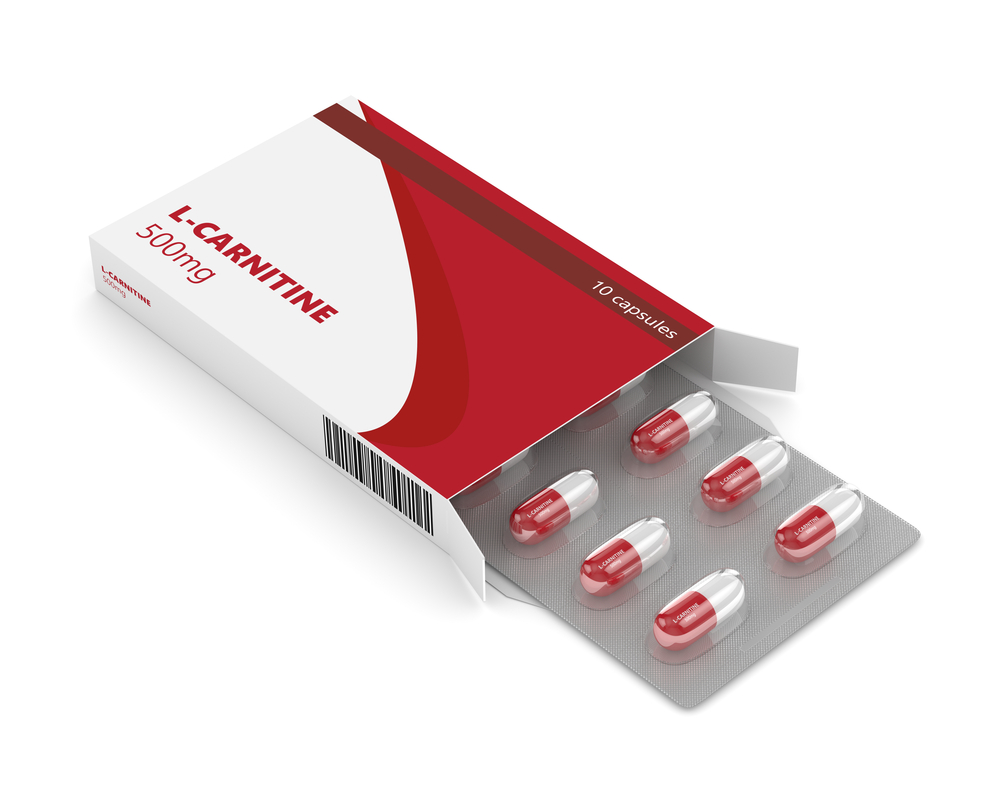
What is Acetyl-L-Carnitine?
There is an amino acid found in most of the cells in your body and made by the liver and kidneys, called L-Carnitine, which helps the body produce energy. Animals produce this amino acid, too – which means you can consume it in some foods.
L-Carnitine is found in meats and fish, which is part of the reason for its name. The Latin word for “flesh” is “carnus.” The L-Carnitine consumed in foods helps supplement natural levels in the body. Vegans and people with particular genetic diseases are sometimes unable to produce enough L-Carnitine, so it is considered a conditionally essential nutrient.
Acetyl-L-Carnitine, otherwise known as ALCAR, is a form of L-Carnitine with a compound attached to it, called an acetyl group. It’s an amino acid derivative. The acetyl group that’s attached to the amino acid helps contribute to production of a neurotransmitter called acetylcholine.

Neurotransmitters are often called the body’s chemical messengers, because they help transmit messages between nerve cells. Acetylcholine in particular helps transmit messages between motor neurons, which control muscle contractions, and is required for mental function. It is found in the brain and throughout the nervous system. In the body, L-Carnitine is naturally converted into Acetyl-L-Carnitine.
Acetyl-L-Carnitine is available as a supplement and has been studied for its potential mental health and cognitive decline applications. Aging appears to correlate with L-Carnitine deficiency, and Acetyl-L-Carnitine supplements can help counter the deficiency, according to Examine.com.
There is pretty good evidence that Acetyl-L-Carnitine supplements can help delay age-related cognitive decline, and reduce symptoms of diabetic neuropathy, according to the University of Michigan. Some research shows Acetyl-L-Carnitine may help with conditions such as Alzheimer’s disease, depression, erectile dysfunction and fibromyalgia, according to the university.

Acetyl-L-Carnitine Uses
There are a number of uses identified for Acetyl-L-Carnitine, with most related to supporting cognitive functions. Some of these uses include:
* Age-related cognitive decline: Acetyl-L-Carnitine supplements may help slow cognitive decline related to age, or help improve cognitive functions of the senile brain, according to research. One study found that short-term, intensive treatment with Acetyl-L-Carnitine supplements can improve mental function of the senile brain without side effects. Another study found that supplementing with Acetyl-L-Carnitine can help with general cognition in the elderly.
* Alzheimer’s disease: Alzheimer’s disease is a progressive, age-related condition that destroys important mental functions and memory. Some short-term studies show that Acetyl-L-Carnitine supplements can slow the progression of the disease, improve memory and enhance mental performance, according to the University of Michigan. One study has shown that Acetyl-L-Carnitine supplements may have a beneficial effect on short-term memory, while another study found it may slow overall deterioration in some cognitive areas. More research is needed.
* Depression: One recent study showed the Acetyl-L-Carnitine can have the same effects as an antidepressant medication called fluoxetine on elderly patients with depression. Fluoxetine is a serotonin reuptake inhibitor, but the study suggests that Acetyl-L-Carnitine works through different mechanisms due to a difference in latency time of clinical response.
* Erectile dysfunction: Erectile dysfunction is a very common condition that affects a man’s ability to have sex. Acetyl-L-Carnitine supplements may help with this condition. One study found that Acetyl-L-Carnitine combined with Propionyl-L-Carnitine safely and reliably improved sexual potency in men who had a particular surgical procedure that resulted in erectile dysfunction. More research is needed, however.
* Diabetic neuropathy: Diabetic neuropathy is nerve damage that results from diabetes, and most often affects the legs and feet. One study concluded that Acetyl-L-Carnitine treatments are effective in alleviating symptoms, such as pain, and improves healing – specifically nerve fiber regeneration.

How to Take Acetyl-L-Carnitine
Dosages of Acetyl-L-Carnitine range between 630 and 2,500 mg, according to Examine.com. It is taken daily by mouth. No official dosage recommendation exists.
It’s best to follow manufacturer instructions and speak with your doctor for guidelines.
Side Effects and Precautions
Acetyl-L-Carnitine supplements can cause side effects such as nausea, stomach upset, vomiting, dry mouth etc. It may cause a fishy odor of breath, urine and sweat. More serious side effects are possible, but rare.
What to Look for in a Good Acetyl-L-Carnitine Supplement
The best Acetyl-L-Carnitine products are free from unnecessary fillers and additives, and provide value – high quality, at a reasonable price. Check the supplement label’s ingredients list for filler ingredients, artificial ingredients and preservatives.
Good quality Acetyl-L-Carnitine products also provide a good dosage, with ideally at least 500 mg per serving. And finally, trustworthy companies make the best products, so research the brand before buying.

